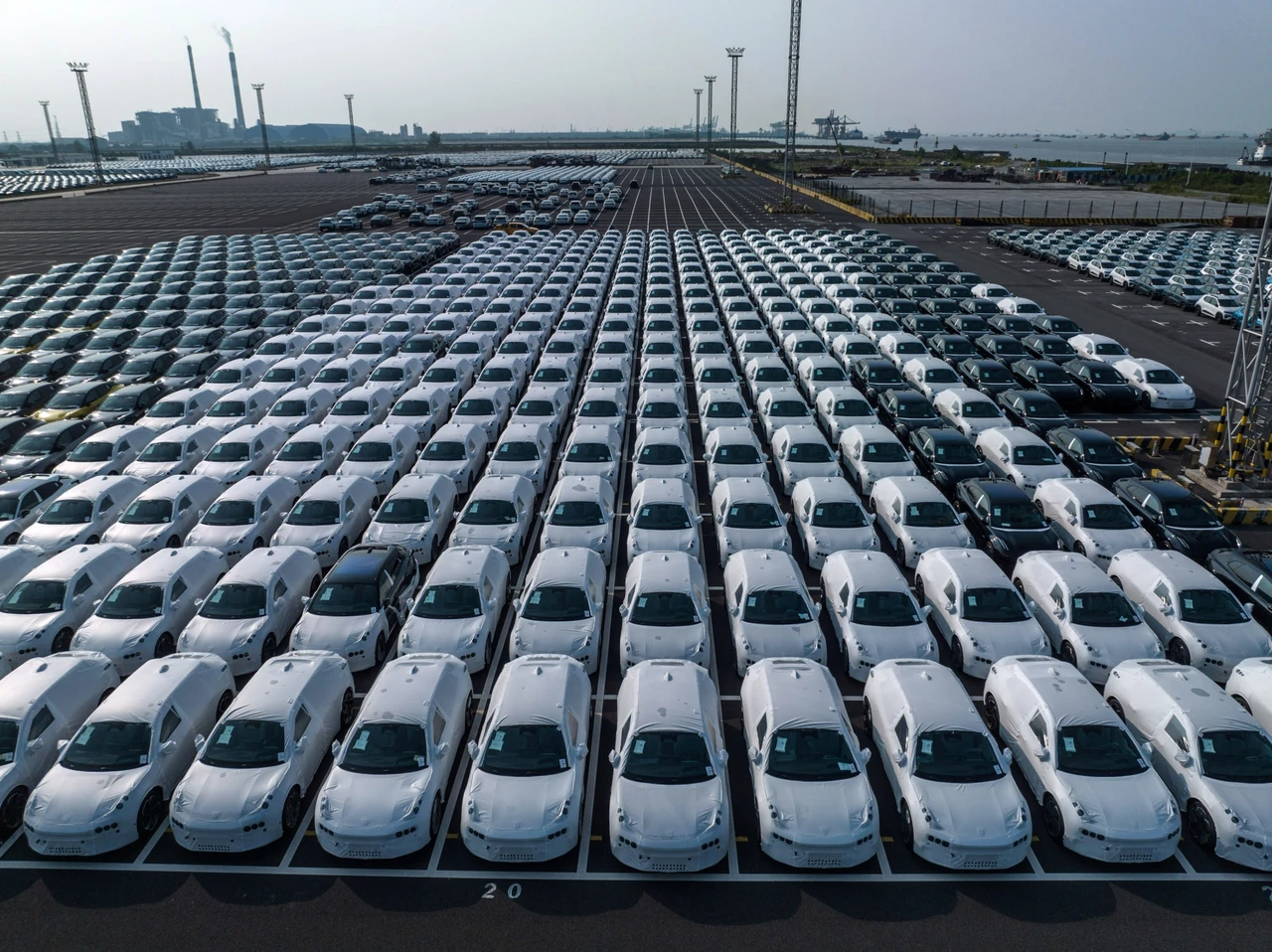This is how Türkiye’s tariffs against Chinese vehicles will storm market

The Turkish Ministry of Trade has decided to impose an additional customs duty on petrol and hybrid passenger cars imported from China.
According to the decision published in the Official Gazette, imported vehicles originating from China will be subject to an additional customs duty of ‘40% of the import value or $7,000 per unit, whichever is higher.’
Which vehicles are subject to the additional tariff?
The new tariff application will come into effect on July 7, 2024. The additional customs duty will apply to motor vehicles listed in Chapter 87 of the Customs Tariff Statistics Positions (CTSP) list, including motor vehicles for the transport of persons, tractors, bicycles, motorcycles, and other motor vehicles, as well as all their parts, components and accessories.
Previously covering solely electric vehicles, the law now encompasses vehicles powered by internal combustion engines, as well as electric motor vehicles and electric vehicle batteries, regardless of cylinder capacity.
Why did Türkiye impose a 40% tariff on Chinese vehicles?
Türkiye imposed a 40% tariff on Chinese vehicles to boost domestic production and reduce the trade deficit. Despite requests from Chinese firms to set up factories in Türkiye, progress has stalled, likely influencing the tariff decision.
Chinese companies, facing global tariffs, are setting up production centers outside China but remain reliant on domestic sales. This move underscores Türkiye’s aim to promote local manufacturing and address trade imbalances.
The impact of the decision
Husamettin Yalcin, the General Manager of Automotive Data Company Cardata, shed light on the matter. Here are the key points from his statements:
- Details of the tax regulation: With the decision published in the Official Gazette, the additional 40% tax rate applied to electric cars will now apply to all fuel types, including hybrids, petrol, and diesel vehicles imported from China. This implies that the customs duty on all passenger vehicles imported from China will increase from 10% to 50%, with the lowest customs duty set at $7,000.
- Challenges for importing companies: The new tax regulation poses significant challenges. Since companies typically plan annually, sudden tax increases can disrupt these plans, significantly affecting inventory management and pricing strategies.
- Investment talks with China and European plans: Recent discussions with China focused on investment matters. However, this new tax regulation may lead to the suspension of these investments. While Chinese brands have announced plans to establish European factories, no such investment has occurred in Turkey yet. For instance, Chery is establishing a factory in Spain, while BYD is doing so in Hungary. These investments would enable Chinese brands to enter the European market more robustly.
- Effects on sales: The new tax regulation, which comes into effect on July 8, is expected to increase the prices of Chinese brands significantly. Vehicles in stock before this date are anticipated to be sold rapidly. Large campaigns may be organized to deplete stocks, leading to record sales. However, a significant decline in sales is also possible after July 8.
- Market dynamics and competition: Chinese vehicles have been contributing to the price balance in the Turkish automotive market. With the increase in prices of Chinese brands, other manufacturers may adjust their prices accordingly. This situation could benefit European car brands and alter the competitive landscape.
- Effects on the second-hand market: The new tax regulation may also increase prices for second-hand Chinese vehicles. We expect a 10-15% increase in prices in the second-hand market, potentially prompting consumers to consider second-hand vehicles.
- Hybrid and electric vehicles: The 40% additional customs duty previously applied to electric vehicles will now extend to hybrid and plug-in hybrid vehicles. This may lead some brands to reconsider their strategies for importing hybrid and electric vehicles. Previous policies promoting electric vehicle import may lose validity with this new tax regulation.
In his final remarks, Yalcin says there will be a significant shift in competition and market dynamics in the Turkish automotive sector.
The price hikes of Chinese brands may strengthen the positions of domestic production and European rivals in the market. Consumers, faced with increased prices, may explore alternative solutions.
Husamettin Yalcin



